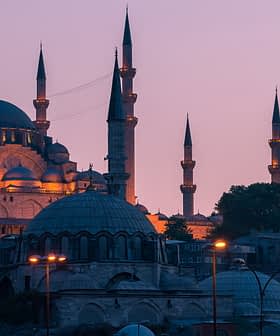Diplomats on both sides of the Atlantic celebrated after the historic European Union-Mercosur free trade deal was agreed in principle in June 2019. However, the deal has stalled in the ensuing 18 months.
If ratified, the agreement would create a single market of roughly 760 million people and eliminate tariffs on 90 percent of goods traded between the two blocs, including olive oil and 99 percent of all other agricultural goods. The deal would also raise the import quotas on a number of agricultural commodities.
See Also:Trade NewsDuring the past year-and-a-half, the 7,000-page agreement has been slowly working its way through the 27 European Union and four Mercosur capitals, where it has met significant skepticism from European farmers and environmentalists as well as from newly-elected South American governments.
The Mercosur is a customs union composed of Argentina, Brazil, Paraguay and Uruguay.
Ongoing forest fires throughout Brazil’s Amazon rainforest as well as in the Pantanal of Paraguay and Brazil have led to questions about the lack of enforcement mechanisms in the sustainable development section of the agreement.
Earlier in the year, a spokesman for German Chancellor Angela Merkel said she had “significant doubts” about whether or not Germany would ratify the deal. The Dutch and Austrian parliaments have also said they will not ratify the deal in its current state.
Senior officials at the European Commission also have signaled that legally binding environmental commitments, especially from Brazil, would be required in order for the agreement to be ratified.
“In its current form, we will not submit it for ratification, and I believe that even if we do, we will not be successful,” Valdis Dombrovskis, the executive vice-president of the European Commission, said.
He added that “durable solutions for the Amazon region” would be required for any agreement to pass through the E.U. member states before being handed off to the European Parliament for final approval.
Meanwhile, on the other side of the Atlantic Ocean, a new government in Argentina has tepidly stated its support of the deal, though President Alberto Férnandez has pulled out of other Mercosur negotiations and said he will prioritize the country’s significant domestic issues over international trade.
“We changed our stance. We started saying no to the deal due to the impact it could have on our industrial sector and because it wasn’t very beneficial on agriculture either,” Felipe Solá, Argentina’s foreign minister, said during a video conference last month. “When the E.U. decides what it wants to do with the deal, we’ll send it to Congress and have a debate around it.”
Brazilian President Jair Bolsonaro, who also came to power after the majority of the deal had been negotiated, is also reportedly not very keen on moving forward with it.
He has been reproachful of European leaders criticizing his handling of the wildfires in the Amazon and has frequently dismissed inculpatory data collected by his own government on the extent of those fires as inaccurate and politically motivated.
In spite of the significant opposition facing the deal, the governments in Spain and Uruguay are still hoping to find a resolution. The Spanish and Uruguayan ministers of foreign affairs met late last month to discuss the next steps for the deal, including the potential to renegotiate parts of it.
“Both ministers have agreed to highlight the extraordinary importance of concluding the negotiation process as soon as possible and declared that they are firmly committed to supporting and motivating, in their respective regional blocs, the negotiations currently underway,” La Moncloa, the seat of the Spanish prime minister, said in a statement.
Uruguay holds the president pro-tempore of the Mercosur until the end of December, at which point Argentina takes over. As the days pass by, however, it seems unlikely that the stumbling block of what to do about the Amazon will be overcome before then.
Francisco Bustillo, Uruguay’s minister of foreign affairs, also has planned stops in Brussels and Paris on his European tour, where he hopes to convince the skeptical French prime minister, Emmanuel Macron, and European Commission diplomats into ratifying the deal.
One solution could be having separate trade and political agreements. This would allow debate over the enforcement mechanisms in the sustainable development section of the agreement to continue while permitting the 15-year period for the cessation of tariffs to begin.
“Mercosur and the European Union must concentrate all efforts in rounding up some of the issues still pending, but given the significance of the accord and thinking of the international credibility of both blocks, it is pressing to have it approved by member countries,” Bustillo said. “However, that being said, Uruguay is most respectful of the domestic debates regarding the deal, but again time is pressing.”








